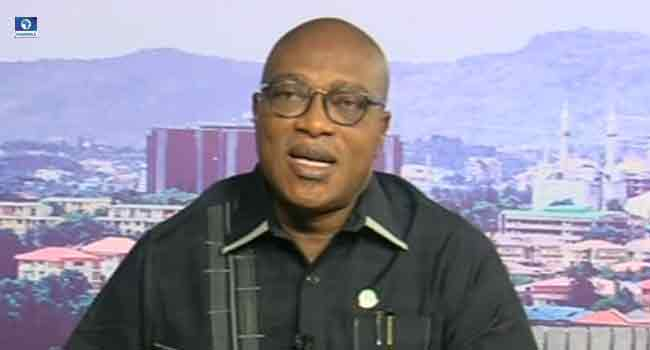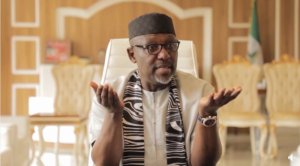
Mike Ejiofor, a former Director of the Department of State Services, recently spoke about his change in perspective regarding ransom payments. He used to advise against paying ransom until he experienced being kidnapped himself.
In an interview with Vanguard, Ejiofor discussed the rising issue of kidnapping in the country. He suggested both short-term and long-term strategies the government could adopt to address this problem. Additionally, he highlighted the reasons why victims and their families often resort to paying ransom as their only option.
On insecurity spiralling out of control, he said;
“It is not out of control but people are worried. I am worried. The issue is that we have not deployed sufficient resources to tackle the problem. No one should be blaming the government now because this issue has been festering for a long time. The largest we have in the budget is for the security sub-sector. There should be proper oversight to ensure the funds are properly deployed. We have to ensure the monies are not diverted by the leadership of security agencies. They shouldn’t live luxurious lifestyles.
You can see what is going on in the country, with people having parties and displaying affluence when the masses are suffering. People in leadership positions should change their lifestyles because of the masses. They can’t be in leadership positions forever. One day, they will leave office and become ordinary people like the masses.
They now see it as an industry. Everybody is getting involved because of economic hardship. The economy is partly responsible for the escalation of criminality. People are suffering. You can’t attack people’s houses and see cash. You can’t break into a shop to collect things because you will be arrested. The quickest way to make money now is through payment of ransom.
The targeting of traditional rulers calls for concern because they are targeting the fabric of our traditional institution. It is to make the government very unpopular and possibly destabilise the government. That is why government needs to act very fast.”
On payment of ransom and kidnappers killing their victims after a ransom has been paid, Ejiofor said;
“It has been happening before and it becoming rampant for them to kill even after collecting ransom. All these are aimed at bringing government to disrepute. There are so many issues that are not meant for public consumption. That is why I said government must intervene to ensure that these people are stopped. If they continue to make advance into Federal Capital Territory, FCT, and they get into the metropolis, of course, they would be seen to have embarrassed government. And everyone would say since Abuja is no longer safe, nowhere in Nigeria. From the way the attacks are taking place now, it seems nowhere is safe anymore. They were restricted to the North-West and North- Central before, but it is happening everywhere now. We saw what happened in Ekiti, Oyo, Ondo and other places. It has become an industry and must be rooted out.
Before I became a victim, I had often said people shouldn’t pay ransom. But that notion changed after I became a victim. He who feels it knows it. Unless you are not involved, you will do everything possible including payment of ransom to release your relative. Of course, government will always discourage people from paying ransom. For me, I believe in the saying that he who fights and runs away lives to fight another day. If you secure yourself, if government cannot secure you, that’s fine.
Another option could have been for government to supervise the payment of ransom to get information. But victims do not cooperate with police. For example, when the wife of former Central Bank Governor, Emefiele, was kidnapped, money used for ransom was marked and the suspects were later arrested. But victims’ families are always impatient. You don’t blame them because they want their loved ones safe. If police or government is telling you not to pay ransom, it is expected. But until you are affected, you will know whether to pay ransom or not.”






Be First to Comment